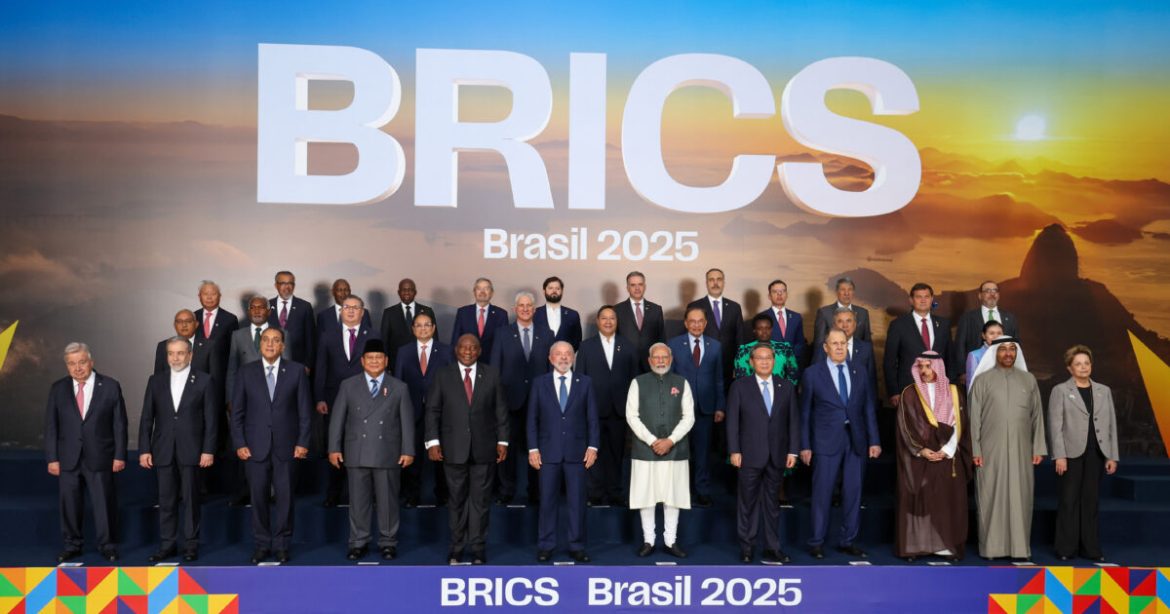

China has promoted two main mechanisms to challenge the dominance of the US dollar and the US-led financial system: BRICS and the Cross-Border Interbank Payment System (CIPS). Both have failed to achieve their goals.
BRICS remains only a political grouping, not a functioning trade bloc. CIPS, launched in 2015 to clear and settle cross-border renminbi (RMB) payments, was designed to reduce reliance on the dollar. Yet it is used mostly by China and a handful of sanctioned states, with limited global appeal.
By January 2022, CIPS claimed about 1,280 member institutions in 103 countries. However, that figure is misleading. The list includes Bank of China branches and subsidiaries abroad, the international offices of Chinese state-owned banks, a limited number of correspondent banks handling China trade, and even banking arrangements for Chinese diplomatic missions. In other words, this is not evidence of widespread international adoption but rather of China’s own institutional footprint.
Beijing has pushed trade partners to settle transactions in yuan instead of dollars, but most countries refuse. Even when yuan is used, it accounts for only a small share of any given transaction, since the US dollar remains the world’s reserve currency and few nations are willing to hold yuan.
The scale disparity underscores this reality. CHIPS, the US Clearing House Interbank Payments System, connects 11,000 institutions and processes $1.8 trillion daily. CIPS, by contrast, has barely more than 1,300 members and processes only around $91 billion per day. The gap between China’s system and the globally entrenched dollar system is enormous.
CIPS also remains heavily dependent on SWIFT, the global secure-messaging system that allows banks to communicate payment instructions with one another. Roughly 80 percent of CIPS transactions still use SWIFT messaging, making it impossible to function as a true alternative. Moreover, the renminbi’s global role remains negligible, accounting for just 2 to 3 percent of international payments and less than 2 percent of letters of credit.
CIPS exists primarily to expand the reach of a single nation’s currency. It lacks the neutrality of SWIFT, remains under Chinese regulatory oversight, and faces resistance from non-Chinese institutions that would need to install new messaging systems. In practice, it cannot replace SWIFT and functions only for yuan-based transactions.
The disparity in volume is staggering. SWIFT handles about 50 million messages daily and settles roughly $5 trillion per day, around $1.25 quadrillion annually. CHIPS processes $1.8 trillion daily, exceeding $400 trillion annually. By contrast, CIPS manages only about 30,500 transactions per day, with a daily value of $91 billion, totaling $24.47 trillion in 2024.
Despite years of promotion, CIPS has not meaningfully challenged the dollar system. Its “growth” reflects Russia’s isolation and China’s domestic push, not genuine global confidence in the yuan. Much of its activity has been driven by China’s own cross-border trade and Russia’s shift to CIPS after being cut off from SWIFT. In 2023, twenty-three Russian banks joined, and transaction volumes rose by 50 percent in 2022 and 25 percent in 2023—growth born of necessity, not international adoption. For now, both CIPS and BRICS remain symbolic rather than systemic threats to US financial dominance.
The other mechanism China has championed is BRICS. Originally comprising Brazil, Russia, India, China, and South Africa, the bloc expanded to ten members in 2025. At the 2024 BRICS Summit in Kazan, Russia, members again floated the idea of creating a new reserve currency, possibly backed by gold or a basket of national currencies, as an alternative to the US dollar. The goal was to assert economic independence and compete with the international financial system dominated by the dollar, which still accounts for about 90 percent of all currency trading.
Yet the idea has never moved beyond discussion. At the July 2024 BRICS summit in Rio de Janeiro, a gold-backed common currency was quietly dropped from the agenda. Barry Eichengreen, historian and economist at the University of California, Berkeley, dismissed the project outright, calling it a charade. India’s Foreign Minister S. Jaishankar was equally blunt, stating: “India has never been for de-dollarization. Right now there is no proposal to have a BRICS currency.”
The obstacles are obvious. BRICS is not a homogeneous group with shared aims, and the members are reluctant to sacrifice monetary sovereignty. No central bank exists to manage a common currency, and creating an issuing authority would be politically impossible. Even when Russia demanded in 2023 that India pay for oil in yuan, India refused, insisting on either rupees or US dollars.
Beyond the currency question, BRICS lacks the institutional framework of a true economic bloc. There is no free trade agreement, despite China proposing one in 2022. Trade among BRICS members accounts for only 6 percent of their combined total trade. Nor is there a mutual defense pact or intelligence alliance that would cement their cooperation.
The group’s only standing institution, the New Development Bank, is 20% smaller than the World Bank and still funds most of its projects in dollars. While China has signed swap agreements with 41 central banks, these arrangements are cumbersome, limited, and have not created meaningful liquidity alternatives.
Russia’s increased use of the yuan since 2023 reflects sanctions pressure rather than genuine de-dollarization. Elsewhere, adoption of the yuan remains negligible. BRICS membership alone has not translated into greater GDP growth for the countries involved, nor has it advanced their financial independence.
The verdict is clear.
A June 2024 study by the Atlantic Council’s GeoEconomics Center found that the US dollar remains firmly entrenched as the world’s primary reserve currency. Both BRICS and CIPS reflect China’s ambition to erode US financial dominance, but both face overwhelming structural, political, and economic obstacles. Far from dethroning the dollar, these initiatives have had no meaningful impact on the dollar-dominated system that continues to underpin the global economy.
The post CIPS and BRICS: How China Failed to Undermine the US Financial System appeared first on The Gateway Pundit.

